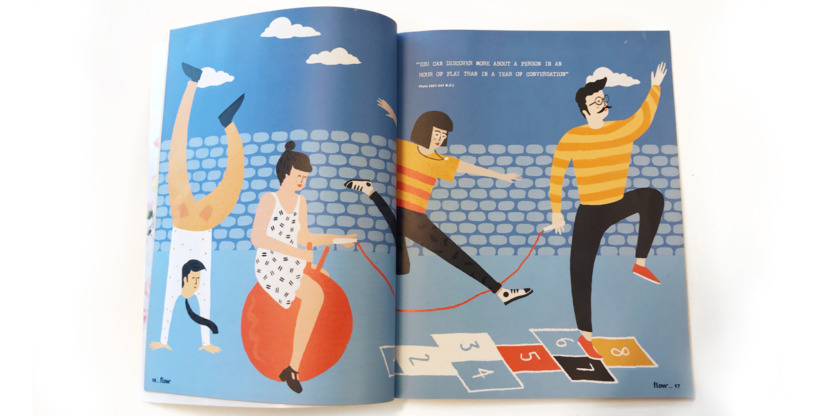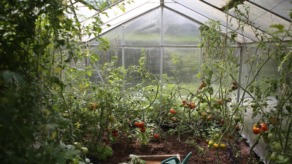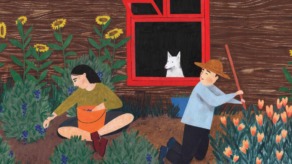Keep playing

“My childhood may be over, but that doesn’t mean playtime is.” So reads the quote gracing the cover of Flow Issue 9. Nevertheless, we do play less as we get older. Journalist and psychologist Otje van der Lelij explores why that is, and discovers how important it is to play throughout our whole lives.
Playfulness is in our nature, in our roots. Like animals, we’re born with an instinct to play, writes psychiatrist and play expert Stuart Brown in Play: How it Shapes the Brain, Opens the Imagination, and Invigorates the Soul. Even hippopotami do handstands under water, monkeys enjoy rolling snowballs down mountainsides, and adult ravens have been seen sliding down snowy slopes on their backs, flying back up the hill and then doing it again.
Play has even been observed in lower life forms. Some fish have been spotted blowing bubbles in a playful manner, and ants entertain themselves with mock fights. It’s only when they reach the adult stage that most animals stop playing. But some species continue playing their whole lives. Take dogs, who endlessly retrieve sticks for you, hoping you’ll throw them again. Just for fun.







